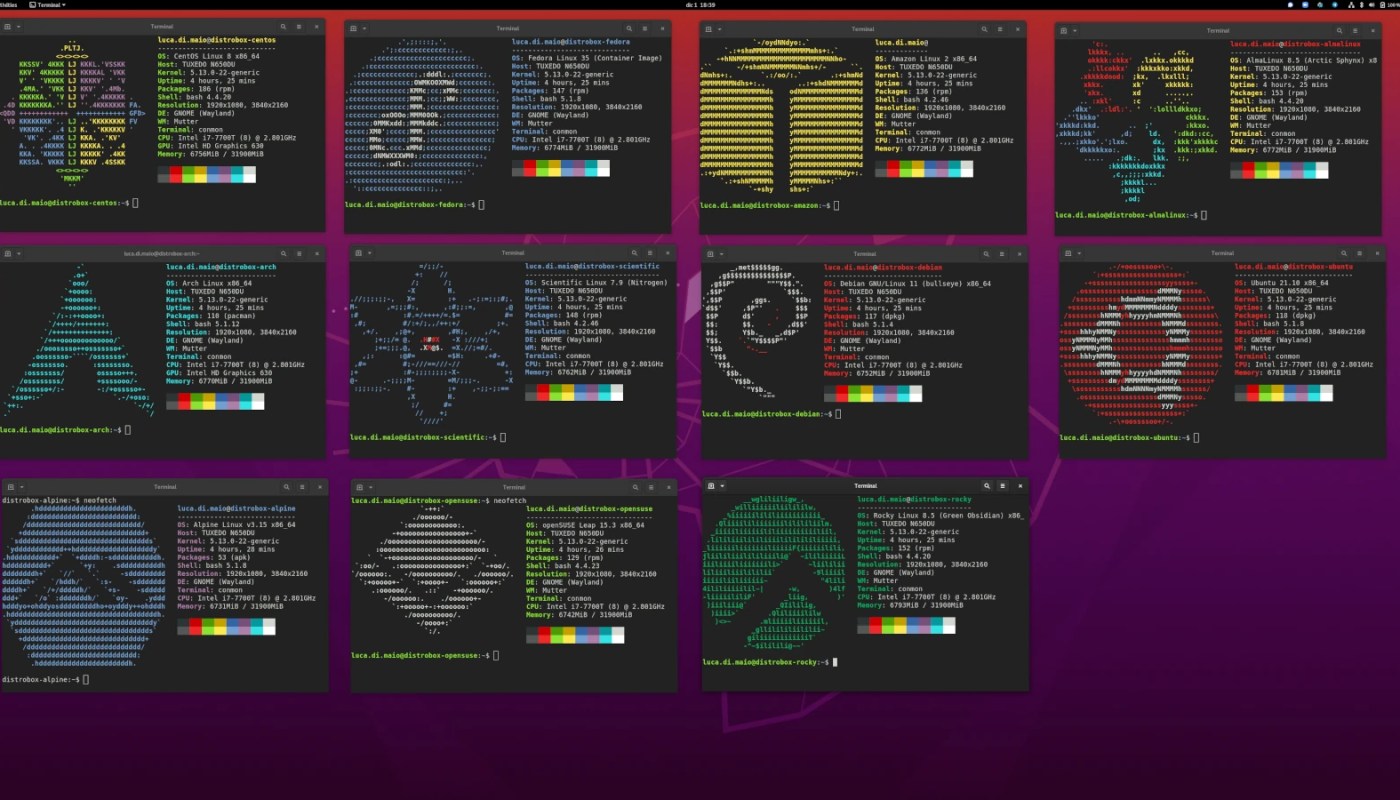For those of you who like to run multiple Linux distributions containerized in a single distro, Luca Di Maio released today Distrobox 1.7 as a major update to this popular tool for running any Linux distro inside your terminal.
Distrobox 1.7 comes with important changes like improved support for NVIDIA systems, improved support for Wolfi containers, improved support for rootful containers for exported graphical apps, better systemd support for initful containers, better login shell management, and improved Terminfo support.
This release also adds a new --enter-flags to the distrobox-export command to specify extra distrobox flags to use when entering, a new --hostname flag to the distrobox-create command to choose a different hostname than the box name, a new --unshare-groups flag to the distrobox-create command to allow unsharing a user’s additional groups inside the container, new distrobox-export --list-apps and --list-binaries commands to view exported apps and binaries.
On top of that, Distrobox 1.7 adds zsh completions, bumps the default container image for Fedora Linux to Fedora Linux 39 and removes support for Fedora Linux 36, updates the Steam Deck installation guide, and improves support for the Gentoo container when adding the --ask argument to the EMERGE_DEFAULT_OPTS environment variable.
Starting with this release, Distrobox now uses the $XDG_CACHE_HOME environment variable to keep cache files in $HOME/.cache/distrobox by default, captures the full container command when exporting an app, allows NixOS package maintainers to ship a static configuration file, and uses the host Terminfo as a fallback.
Of course, numerous issues and bugs were addressed in this update so you can have a better experience when running your favorite GNU/Linux distributions containerized inside your terminal emulator. For more details, check out the release notes on the project’s GitHub page.
Distrobox 1.7 is available for download from here if you fancy compiling it from sources. If that’s not your cup of tea, you’ll have to wait for this version to arrive in the stable software repositories of your favorite GNU/Linux distribution to update and enjoy the new enhancements.
Image credits: Luca Di Maio
Last updated 2 months ago

